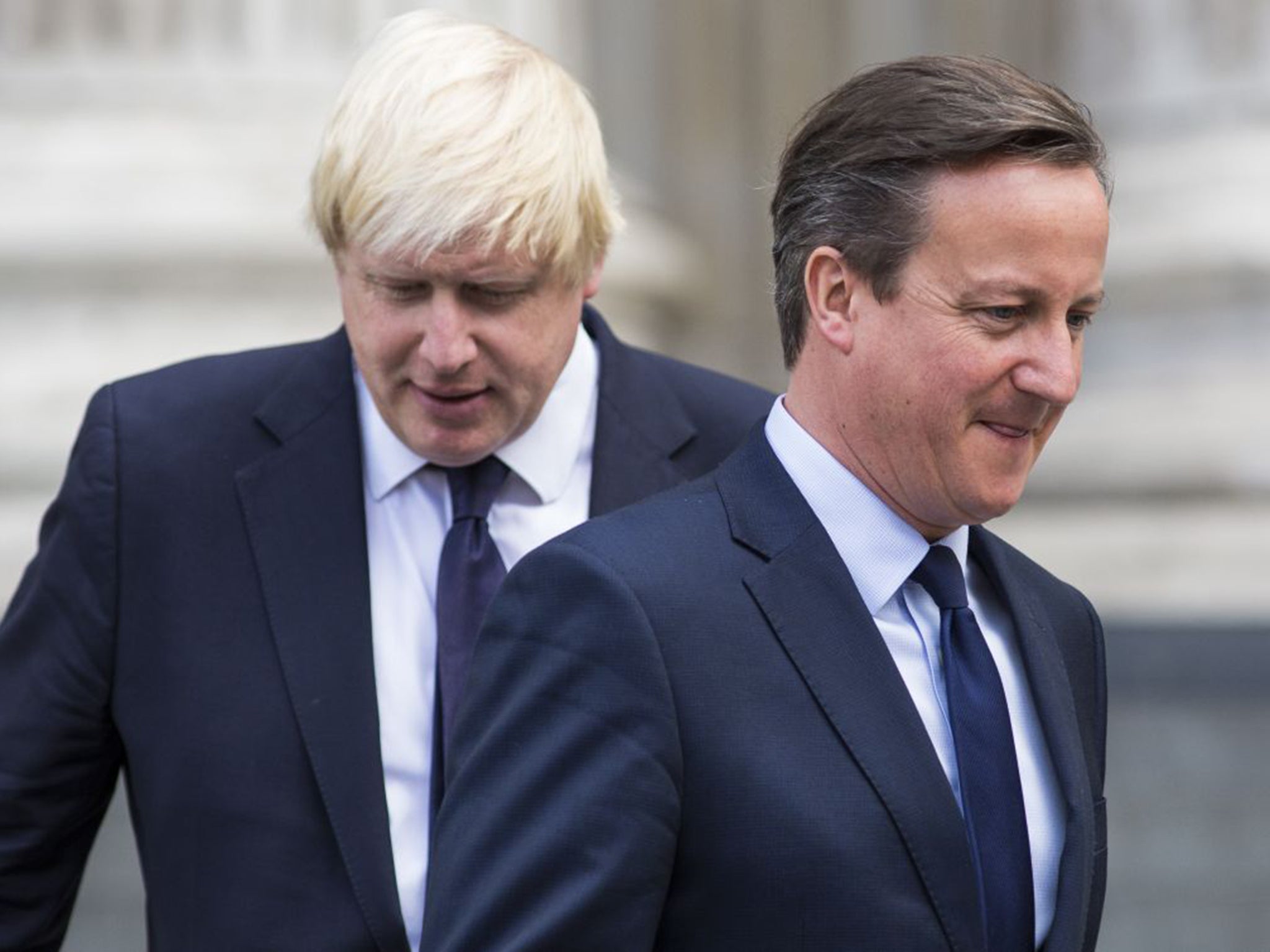EU referendum: Boris Johnson says he will back In campaign if David Cameron can create sovereignty plan
Mayor wants proof of Parliament’s supremacy over EU before he will back campaign to remain

Boris Johnson has given David Cameron a week to come up with concrete plans to “safeguard British sovereignty” before Parliament breaks up for half-term ahead of the EU summit in Brussels.
The London Mayor has been in regular contact with the Prime Minister but has refused to be “bounced, bullied or conned” into campaigning for Britain to remain in the European Union until a proposal to formally state Parliament’s supremacy over European institutions has been unveiled.
Mr Cameron is already facing a race against time to finalise an agreement with the 27 other EU leaders, with at least two disputed areas having the potential to scupper a deal.
The Prime Minister has yet to agree the details of a proposed emergency brake on in-work benefits for newly arrived European migrants. He also needs to square-off increasingly outspoken MEPs in the European Parliament who warned their support for the welfare crackdown – required under the draft agreement published last week – could not be taken for granted.
Mr Cameron’s second major challenge, ahead of the summit on 18 February, is to agree the “substance” of a mechanism to protect Britain from eurozone countries erecting barriers to the single market.
George Osborne sees the measure as the most important element of the entire renegotiation, but it has yet to be agreed amid mounting concern from the French that it could be used to give the UK a veto over the single currency’s ability to integrate.
British officials will begin a frantic round of diplomacy to iron out the final details of the deal ahead of the meeting in Brussels later this month. But European diplomats have left open the prospect of a second emergency summit to agree the package of reforms if a breakthrough fails to be achieved.
Mr Johnson, the London Mayor, is expecting to be given a full briefing of the finalised deal at a meeting of the “political cabinet” – a body specially created for him to attend while he remains outside the full cabinet – on 23 February, following the EU summit the week before.
A friend of Mr Johnson told The Independent on Sunday he was still “genuinely deliberating” and is not concerned about the impact it could have on his future leadership chances.
“He will be judged on how he makes the decision, not what the decision is. He is one of the few people who could survive picking the ‘wrong’ side.
“There is still more work to be done to convince people on the safeguards to British sovereignty. David Cameron knows that, and Boris is waiting to see what Number 10 come up with.”
The friend added: “It will have to be next week if they are going to produce anything. They will probably ring him this week. The PM will ask are you going to back it or not?
“He won’t be bounced, he won’t be bullied and he won’t be conned. He was given assurances on sovereignty.”
Mr Cameron is expected to hold talks with Angela Merkel ahead of this month’s summit. The German Chancellor’s support is key to winning over the ruling block of centre-right MEPs in the European Parliament which have the power to scupper any deal struck by EU leaders.
The president of the European Parliament, Martin Schulz, visited London on 4 February to warn that MEPs could water down any deal to restrict migrant benefits won by Mr Cameron. The claim sparked an angry reaction from the Prime Minister, who insisted a deal signed off by European heads of government would be legally binding and could only be unpicked by the unanimous agreement of the 28 EU countries.
According to the draft agreement published by the European Council president, Donald Tusk, the EU will “amend freedom of movement for workers within the Union” to provide a “safeguard mechanism” when the flow of migrants into one country is “exceptional … over an extended period of time”.
To apply the emergency brake the UK, or any other EU country, would need to notify the European Commission – headed by Jean-Claude Juncker – and the Council, made up of the heads of all 28 EU countries.
It would last for “up to four years” from when a new migrant starts work. However, the length of time under which a country could restrict benefit payments to migrants has not been signed off. The draft proposal merely states that it would last “[X] years, extendable for two successive periods of [Y] years and [Z] years”.
Join our commenting forum
Join thought-provoking conversations, follow other Independent readers and see their replies
Comments
Bookmark popover
Removed from bookmarks